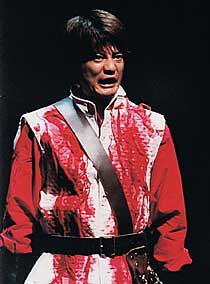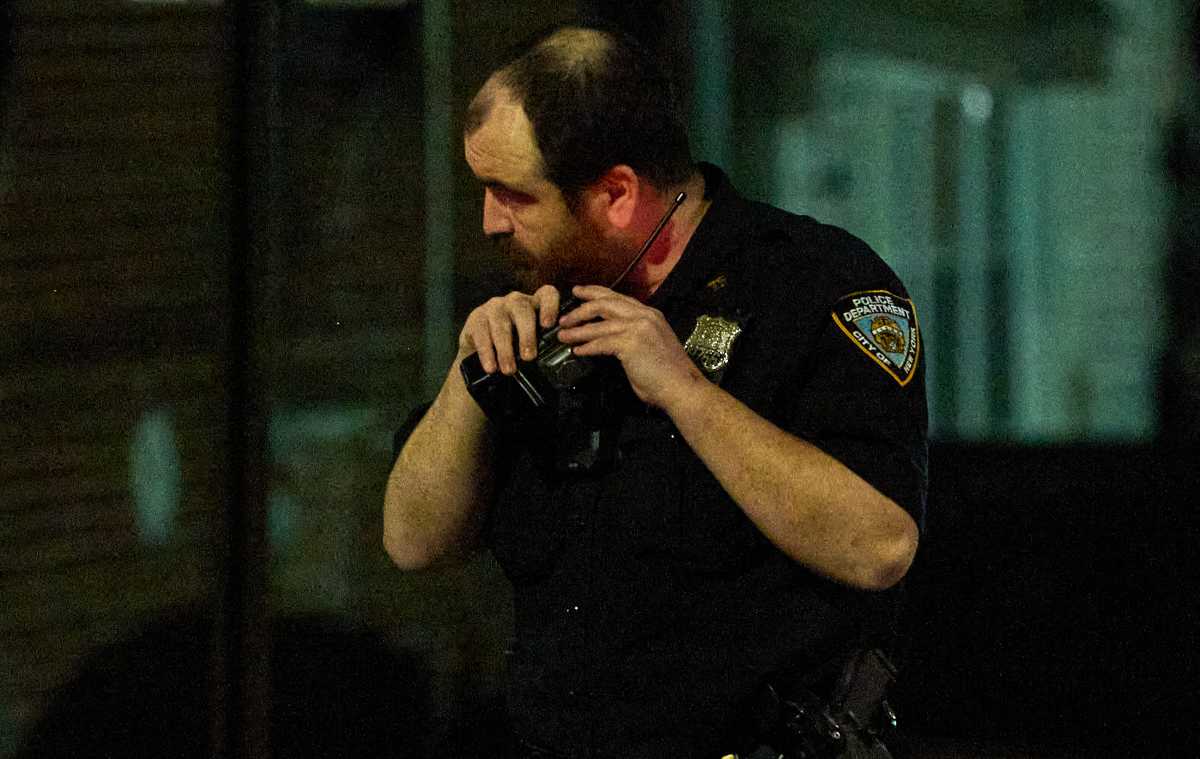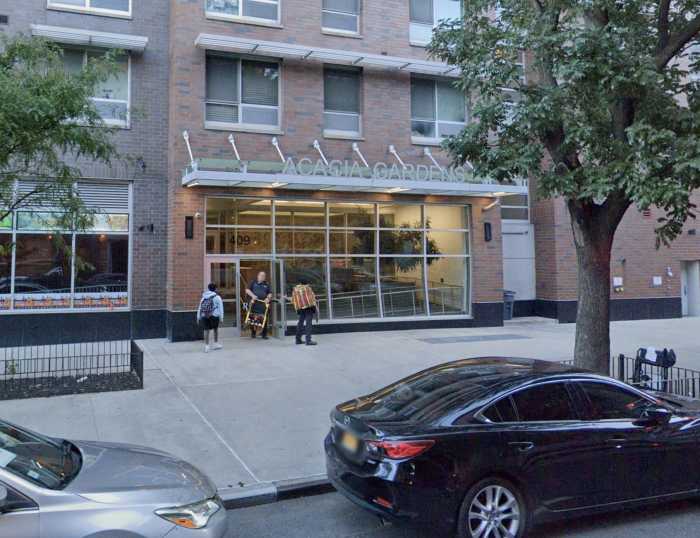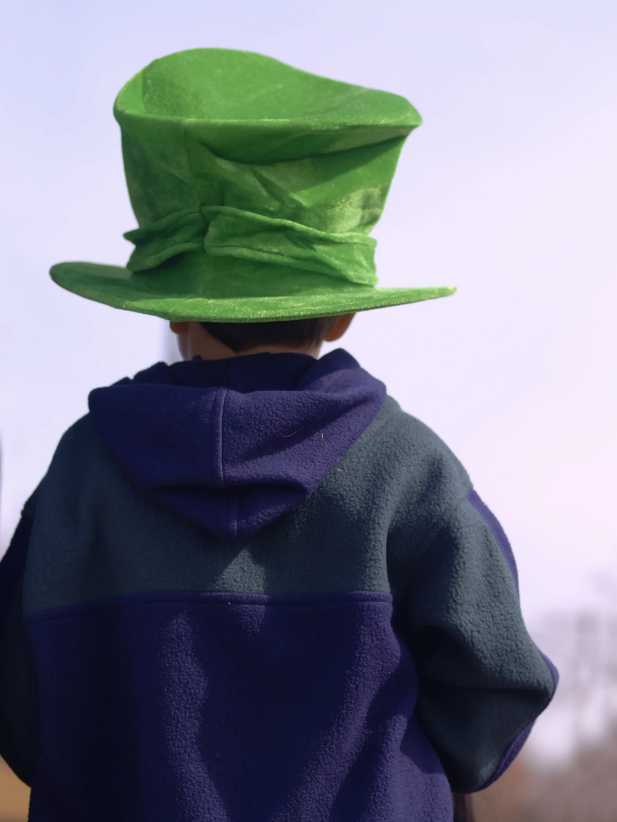Even for a time noted for its gore, William
Shakespeare’s "Macbeth," written in 1606, is a famously
violent play. The audience rarely sees the actual murders, but
they are quite adequately represented onstage by bloody hands
and bloodier descriptions. There’s Banquo’s death, Duncan’s death,
Lady Macbeth’s suicide, and at last, Macduff bearing Macbeth’s
severed head.
In The Ninagawa Company’s "Macbeth," at BAM’s Howard
Gilman Opera House Dec. 4-7, this stark brutality is augmented
by the mirrored surfaces of the sets (designed by Tsukasa Nakagoshi)
that multiply the bloody bodies and severed heads. These reflecting
surfaces are inspired by and reinforce the witches’ unsettling
vision in Act IV of a line of kings – "And yet the eighth
appears, who bears a glass, which shows me many more."
"In order to believe the prophecy, I thought we needed the
carnage in battlefields and bloody revenge," says director
Yukio Ninagawa via e-mail from Japan. "If we do not believe
in the existence of the witches themselves, then the action by
Macbeth and Lady Macbeth does not seem real."
But Ninagawa also gives another inspiration for the mirrored
set: "my aching desire to mirror the contemporary world."
The mirrored surfaces work with Ramotsu Harada’s lighting to
create a variety of illusions onstage – scenes with only a few
actors appear crowded, and entrances from the auditorium, reflected
on mirrored sliding doors, seem as if they are coming from upstage
– all part of Ninagawa’s vision of theater as an "uber art."
Ninagawa, who began his career as an actor, made his directorial
debut in small-scale theaters in Japan in 1969 and achieved critical
acclaim for his direction with "Romeo and Juliet" at
the Nissei Theatre in Tokyo in 1974, was last seen at BAM during
the 1990 Next Wave Festival with an earlier interpretation of
"Macbeth." And the company is currently directing all
37 of Shakespeare’s plays at Tokyo’s Saitama Arts Theatre as
part of the Sai-no-kuni Shakespeare Series.
"Shakespeare’s plays are filled with his strong desire to
completely understand and accept human nature and the world.
His strong will touches us, who live in contemporary society
and rarely have a broader view. I’d like to share this view of
the world with others by staging his inspiring plays," he
says.
Ninagawa believes that although "Macbeth" will be performed
in Japanese translation (with English surtitles), audiences will
"still be moved by Shakespeare’s appealing and beautiful
language."
"You can tell that from the fact that many Japanese love
Shakespeare," he says.
But Ninagawa is not only working with a Japanese translation,
he is also working with and within the Asian tradition.
"I want to believe that it’s meaningful for us to do Shakespeare.
We are trying to destroy and at the same time create the Japanese
tradition by combining the Asian theater, which values style,
and the European theater, which is largely based on realism,"
he explains.
In the end, however, it is the universal message Ninagawa chooses
to emphasize. He has cast young actors in both the title role
(Toshiaki Karasawa) and as Lady Macbeth (Shinobu Otake) because
he sees the play as a kind of end of innocence.
"If there is a last day of youth, this is a story on that
night – the story of young folks," he says. "Macbeth
and Lady Macbeth are making a choice of how to live. They choose
to believe in the witches’ prophecy. It is young peoples’ privilege
to get to choose one out of many possibilities."
Through choosing evil they come to a "deeper realization
of things."
"I see the human impulse there," he says. "This
is universal."
And what could be more universal than a Scottish story retold
by an Elizabethan playwright, reinterpreted by a Japanese director
and presented to an American audience in Brooklyn?
The Ninagawa Company’s "Macbeth"
plays Dec. 4-7 at 7:30 pm at the BAM Howard Gilman Opera House,
30 Lafayette Ave. at Ashland Place in Fort Greene. Tickets are
$25 and $50. For tickets, call (718) 636-4100 or visit the Web
site at www. BAM.org.

























